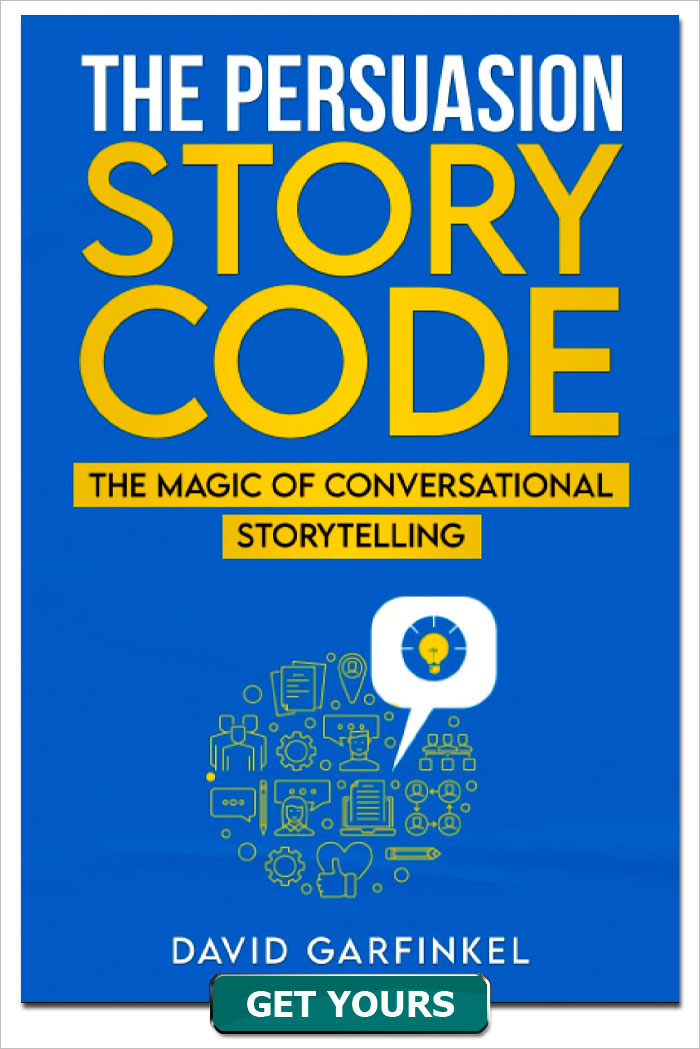Episode 044 - Writing With Muscle
Published by: David Garfinkel on 02-18-2018
Tweet
I got this small rubber ball to squeeze to strengthen the muscles in my left hand, when I started playing guitar again a couple years ago after a 40-year “break.”
You want your copy to be as strong as possible, too. Remember that good copy has a job to do… to move qualified prospects to take action. That takes muscle! Today’s episode tells you how to make your copy more muscular.
Copy is powerful. You’re responsible for how you use what you hear on this podcast. Most of the time, common sense is all you need. But if you make extreme claims… and/or if you’re writing copy for offers in highly regulated industries like health, finance, and business opportunity… you may want to get a legal review after you write and before you start using your copy. My larger clients do this all the time.
These are seven easy-to-use tips. You might want to cut and paste the show notes from our home site, copywriterspodcast.com, and make yourself a little checklist. Use the checklist to go over your copy after you’ve written it, to make it more muscular.
I’ll give you two tips, and then five more from three great books… we’ll include the titles and amazon links in show notes.
The books are: The Art of Plain Talk, by Rudolph Flesch; Writing Tools, by Roy Peter Clark; and The Magic Power of Emotional Appeal, by Roy Garn.
TIP 1. Your first tip for making your writing more muscular comes directly from me. In fact, I used my recently strengthened left hand to type this up for the show notes:
Use active verbs / active sentences / and write about things the reader or listener can easily visualize.
Example:
The Copywriting Podcast is listened to by thousands of people. // weak, passive
Thousands of people listen to the Copywriting Podcast. // strong, active
TIP 2. From me: Short words / short sentences / short paragraphs — but do mix it up.
If every word, sentence and paragraph is short, your copy quickly becomes boring and ineffective. But do what you can to keep your writing clear and understandable by using simple words, sentences and paragraphs more often than not. Complexity creates confusion in the prospect’s mind – and the confused mind does not buy.
TIP 3. In Rudolph Flesch’s The Art of Plain Talk, slavishly follow these rules from the Chapter “Gadgets of Language,” where Flesch is quoting another author, H.W. Fowler, in his book “The King’s English”:
These five rules:
⁃ Prefer the familiar word to the far-fetched.
⁃ Prefer the concrete word to the abstract.
⁃ Prefer the single word to the circumlocution.
⁃ Prefer the short word to the long.
⁃ Prefer the Saxon word to the Romance.
Let’s look at a couple of these.
Prefer the concrete word to the abstract:
For weight loss. Abstract: You can see impressive results in less than a month.
Concrete: You can drop three dress sizes in less than a month.
For Facebook advertising, Romance word:
On Facebook, you’ll experience more transactions with the same ad spend.
For Facebook advertising, Saxon word:
On Facebook, you’ll kill it more often with the same ad spend.
Note: To get you started on this, there’s a Wikipedia page on words with Anglo-Saxon origin. Link in the show notes.
TIP 4. From Rudolph Flesch again, Chapter 4, “The Grammar of Gossip” Always put people in your writing, as often as possible. It makes the writing more interesting and keeps the reader engaged.
“The thing to do in such a situation is to go through the text sentence by sentence and to look for the logical-not the grammatical-subject. After a while you will discover that the logical subject is always a person and that every sentence can be written so that this person is mentioned.”
Non-people: The critique was so effective that when the ideas were put into effect, the conversion rate on the VSL more than doubled.
A person: Brett took the ideas from my critique and put them to work. The ideas were so effective that Brett doubled his conversion rate on the VSL.
TIP 5. From Roy Peter Clark:
Put your strongest words at the start and end of each sentence.
(example - before and after)
TIP 6. From Roy Peter Clark:
Use internal cliffhangers. Keeps ‘em reading!
TIP 7. From Roy Garn:
Use the most powerful Emotional Appeals as often as you can, logically and plausibly. The four most powerful Emotional Appeals are:
- Self-preservation
- Money
- Romance
- Recognition
This is practically a full copywriting course in itself. Self-preservation can mean survival, or immortality, or even keeping your job. Money… well, as Danny DeVito said in the movie The Hiest, “That’s why they call it money!” Romance is of course love and sex, but it’s also taking an ordinary idea and making it special, like the experience of driving a new car and making it romantic. Recognition can include prestige, appealing a person’s sense of identity, and personalizing a message by using a person’s name.
So that wraps up Writing with Muscle. Learn to use these tips and with practice, they’ll become habits.
Next time: Increasing Perceived Value
Books and links
The Art of Plain Talk, by Rudolph Flesch http://a.co/3xPclwa
The Art of Plain Talk, by Rudolph Flesch
Writing Tools, by Roy Peter Clark
The Magic Power of Emotional Appeal, by Roy Garn
Wikipedia page on words of Anglo-Saxon Origin
Keywords: copy editing tips









